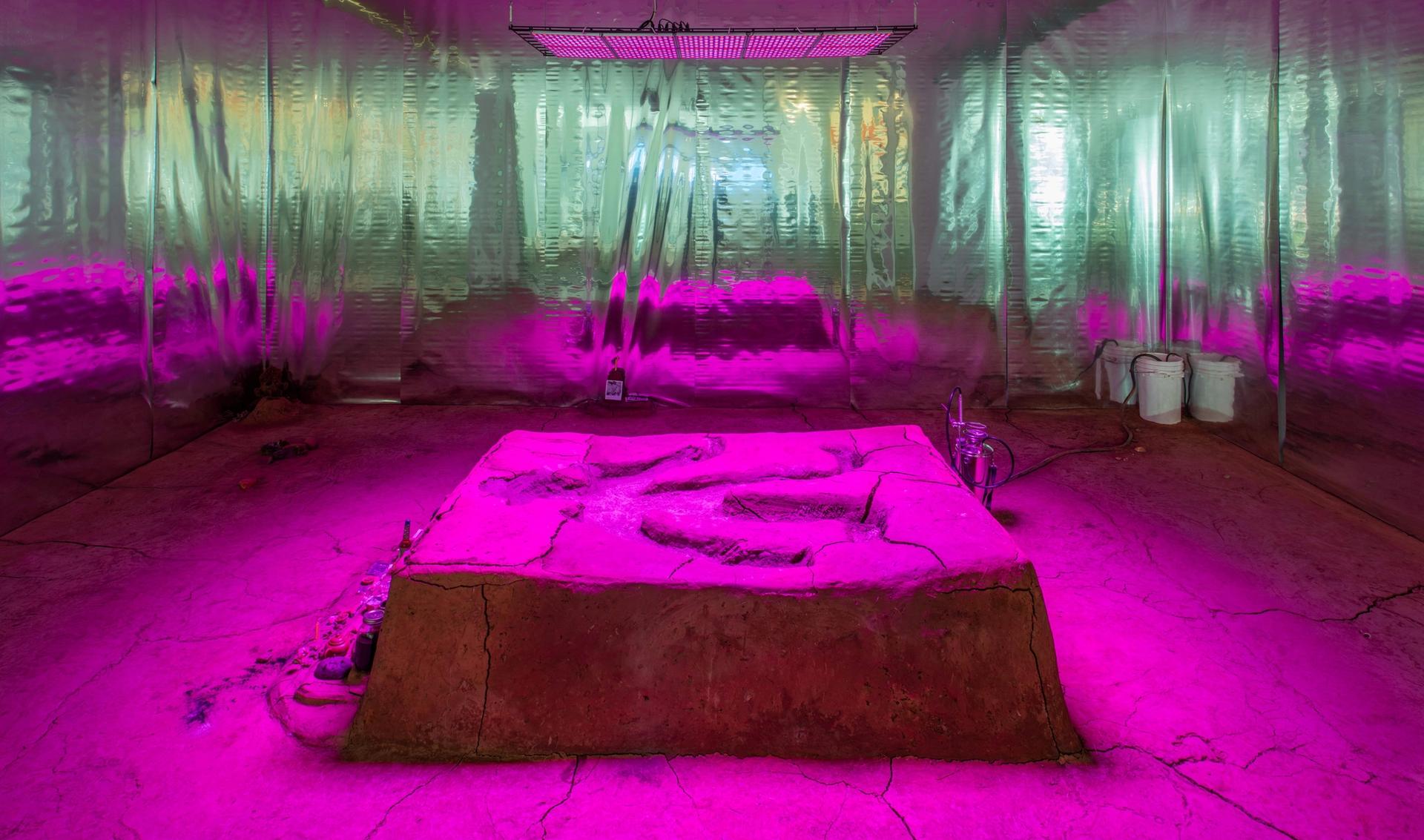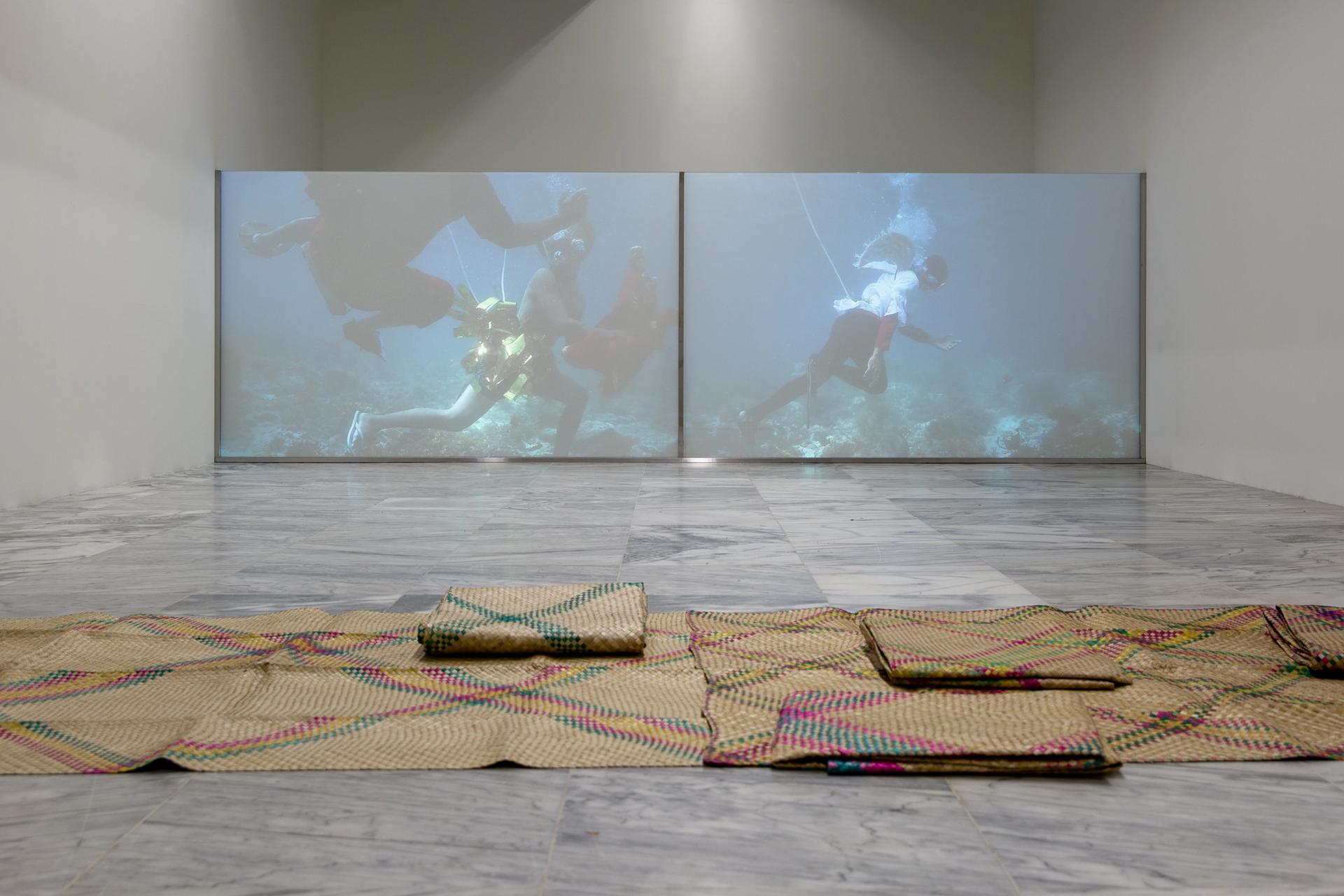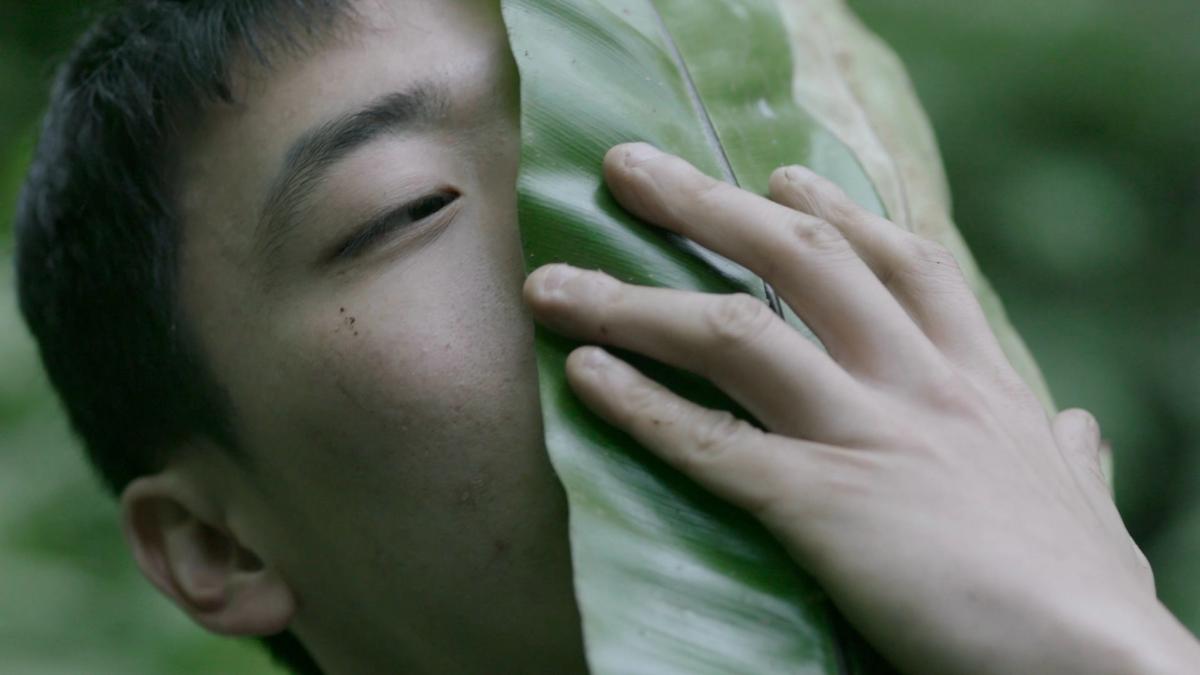Instead of taking art to the streets, the Taipei Biennial is bringing the streets into the museum this year. Along with six non-governmental organisations (NGOs), the co-curators Mali Wu and Francesco Manacorda have invited Taiwanese indigenous land right protesters to occupy a hall and courtyard of the Taipei Fine Arts Museum for the duration of the exhibition titled Post-Nature: a Museum as Ecosystem (until 10 March).
The collective Indigenous Justice Classroom presents a video of the ongoing protests, which started in spring 2017 outside the Presidential Palace and were forcibly removed to outside a nearby MTR station after 100 days. Tents from prior protests hang from the museum ceiling, joined by painted towels and slogans.
The project was adapted for the museum by three activists including filmmaker Mayaw Biho, and they have hosted regular forums, talks and workshops with painting on stones. “They use stones because they are a symbol of the land, and also the material they use to build their houses, so has a magical meaning for them," says Wu, a Taiwanese artist and curator known for her environmental activism. "Over the past two years, the indigenous class has been fighting to keep its traditional territory—in vain. Post-Nature is about how people live in a certain environment, so when you lose your land, or your traditional territory, it means not just that you lose your land but you also lose the tradition, all the culture, even the language, of what you experience in your daily life.”

Candice Lin, La Charada China (2018) © Taipei Biennial 2018
The exhibition throughout similarly leaps into many of the sort of grassroots quandaries surrounding the tension between ecology and economy that presaged the upset in Taiwan's local elections last November. The midterm ballot saw the pro-mainland opposition Kuomintang seize major mayorships from the Democratic Progressive Party, which holds the presidency until 2020; president Tsai Ing-wen resigned as leader of the DPP in response. Three ballot initiatives, one reaffirming same-sex partnerships but two others restricting full legal marriage equality from extending to parenting rights, garnered the 25% needed for passage. The island will still issue licenses for same-sex marriage starting this May, but now on limited terms. The defeat of the socially progressive DPP, though, is more widely attributed to economic stagnation under Tsai rather than its progressive policies.
On 1 January, mainland Chinese president Xi Jinping made a speech asserting his commitment to reunification with Taiwan, which the mainland considers a renegade province, by military force if necessary. While it continues the longstanding position of the mainland’s Communist government, the statement’s aggressive tone casts a pall over cross-straits relations, and Taiwan’s future itself.
"This is the time for us to change the model of our economy," says Wu, who was “very conscious” of the pertinence to the elections, a week after the biennial’s opening. “A lot of those related issues [artists] are discussing, like energy arrangement, air pollution, garbage dumping—these are key elections in this election. Though it is a local election, people really care about that.” She describes how impacted the island is by intensifying typhoons and regional pollution. “Taiwan was famous for the industrial production, which consumes a lot of water, energy, etcetera, but at the same time we have a problem with the polluted air, and also the [industrial] dumping issue." The show's two Ecolabs, run by NGOs Thousand Miles Association and Keelung River Watch, monitor and present the environment around TFAM, including with a dedicated app, and organise public tours of Taipei's ecosystem.
Just as Asia's and the world's pollution finds its way to Taiwan, the topic similarly resonates through the region. "After environmental art there is a really complicated history, and political and social issues," Wu says. "It's not just about protecting the earth but also you've got to explore what has happened in history. Especially with artists from Southeast Asia, they share a similar colonial history with Taiwan. Our nature was quite exploited during colonisation, it had a huge impact on the land." For example, the Holland- and Philippines-based artist Martha Atienza's Our Islands 11°16’58.4”N123°45’07.0”E shows an underwater procession of priests, police, drug dealers, and cross-dressers, all impacted by ocean damage around the archipelago.

Martha Atienza's Our Islands 11°16’58.4”N123°45’07.0”E © Taipei Biennial 2018
Atienza's video shares a basement passage with La Charada China, a bright and noxious installation by the Chinese-American artist Candice about Chinese coolie labour exported to the Americas, and—past an under-18 warning label—Zheng Bo's videos Pteridophilia 1, 2 and 3. The Beijing-born, Hong Kong-based Zheng is the only Mainland Chinese artist in the exhibition, apart from a screening of Chen Jianjun and Chao Minghao's documentary on Sichuan water issues in the ancillary programming. Zheng's videos, showing a naked man passionately copulating with plants, could not be screened back in China. But in Taipei, Wu says. "We are quite open to all sorts of challenges. In the ecosystem, there are no boundaries."


